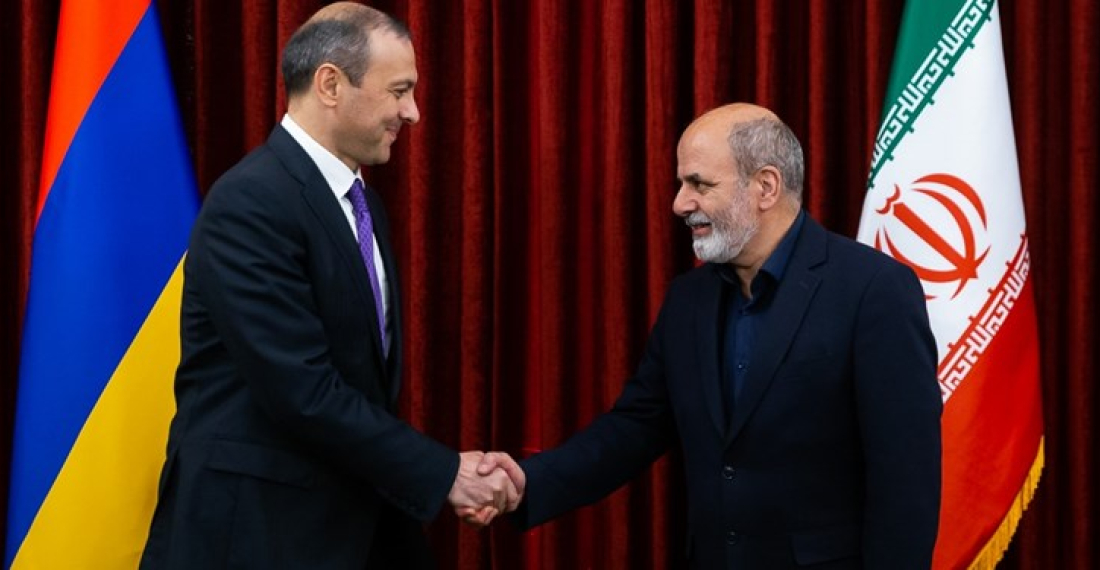The Secretary of Iran's Supreme National Security Council (SNSC), Ali Akbar Ahmadian, underscored Tehran's firm opposition to geopolitical changes in the region, and warned that any border change will bring about instability and insecurity and aggravate crises.
Ahmadian made the comments in a Sunday meeting with Secretary of the National Security Council of Armenia, Armen Grigoryan, in Tehran.
The Iranian official pointed to the latest developments in the Caucasus region, and called on all parties to help establish peace in the region.
The Iranian FARS news agency said that Ahmadian reaffirmed Iran's principled and unchanging policy on developing relations and interaction with the neighboring states and creating a region free of conflict.
"Frank and constructive dialogue among regional countries will prepare the ground for [improving] sustainable security, balanced development and prosperity of the nations in the region," the SNSC secretary stated.
Ahmadian voiced Iran's readiness to arrange a meeting among the regional states.
He placed a premium on increasing economic cooperation and joint commercial exchanges between Iran and Armenia and said Tehran is keen to boost relations with Yerevan in all sectors.
Grigoryan, for his part, said Iran and Armenia enjoy deep-rooted relations and voiced Yerevan's readiness to enhance comprehensive relations with Tehran.
The Armenian security chief hailed Iran's effective role in establishing security and stability in the Caucasus region, and urged Tehran to proceed with its efforts in this regard, FARS news agency reported, adding that he highlighted the significance of the economic, commercial and industrial projects between the two countries.
Iranian officials have repeatedly stressed Tehran’s opposition to geopolitical changes in the region, and reaffirmed the country is ready to use all its capacities to establish peace in the Caucasus region and its growth and development, according to FARS.






